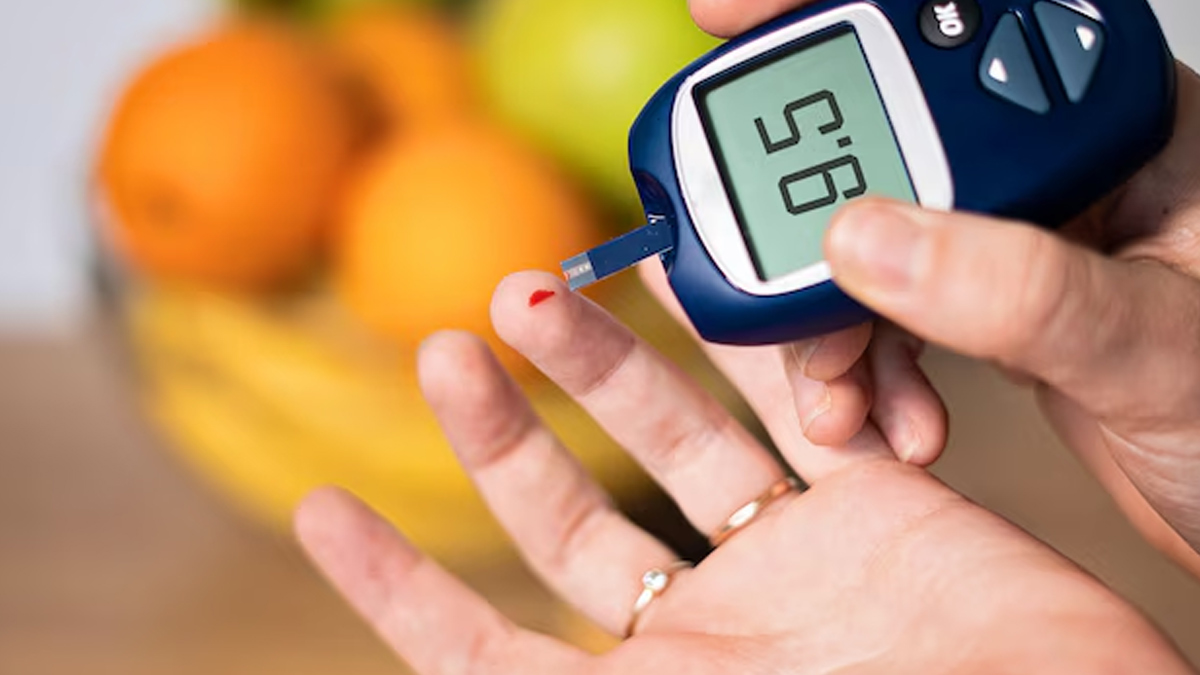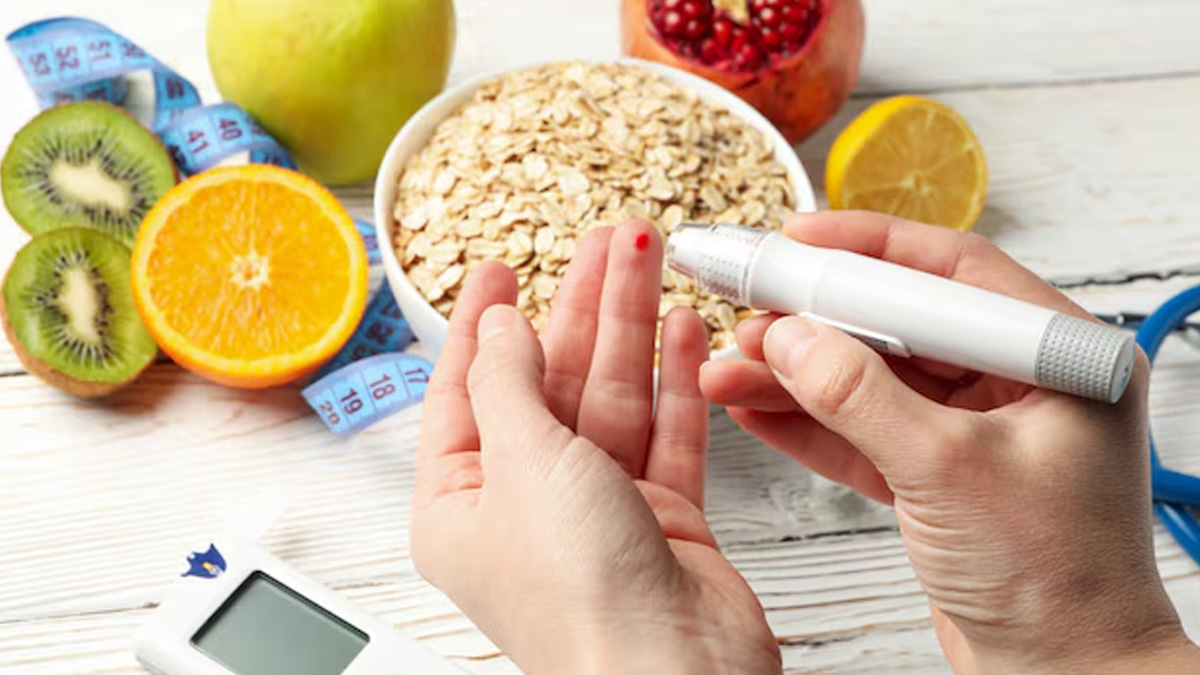
Anyone can experience blood sugar spikes. This means whether or not you have diabetes, your blood sugar levels can increase due to several factors, including food choices, stress, illness, medications, and even hormonal changes. In fact, many people experience what's known as the dawn phenomenon, a natural rise in blood sugar levels that happens in the early morning hours. Such a phenomenon is triggered by hormonal shifts that prepare your body to wake up.
Table of Content:-
While occasional spikes are normal, frequent or uncontrolled fluctuations can take a toll on your energy, mood, and long-term health. The good news? A few mindful habits in the morning can go a long way in keeping your blood sugar stable throughout the day. Speaking with the OnlyMyHealth team, Dr Satyam Chakraborty, Consultant Endocrinology, Fortis Hospital, Anandapur, shares 10 simple morning habits that can help prevent unwanted blood sugar spikes.
Also Read: Expert Shares Why You Should Avoid THESE Worst Foods For People With Diabetes
1. Start With A Balanced Diet

Your breakfast, or the first meal of the day, is extremely important, especially if you want to keep a watch over your blood sugar levels. In fact,studies show that skipping breakfast may worsen glucose and insulin responses. Therefore, a meal rich in protein (eggs, Greek yoghurt), healthy fats (nuts, seeds), and complex carbohydrates (whole grains, vegetables) slows down glucose absorption.
2. Avoid Sugary Foods Early
It’s simple: eating sweets, fruit juices, or refined carbs on an empty stomach can cause a rapid spike in blood sugar. That’s why it’s best to avoid sugary foods and drinks first thing in the morning.
3. Hydrate Well
While not everything your elders tell you is accurate, they’re certainly right about starting your day with a glass of water. Dr Chakraborty emphasises the importance of adequate hydration, as it supports kidney function and helps flush out excess glucose. This in turn keeps blood sugar levels in check.
4. Incorporate Morning Exercise

Regular exercise, even if it means a brisk walk, yoga, or light stretching, can enhance insulin sensitivity and glucose uptake by muscles. Making it a part of your morning routine can do wonders not just for your blood sugar levels but for your overall health.
Also Read: Wondering How To Stop Craving Sweets After Every Meal? Here's How
5. Check Fasting Blood Sugar
Fasting blood sugar is the level of glucose or sugar in the blood after you haven’t eaten for at least eight hours, usually measured first thing in the morning. It’s a key indicator of how well your body regulates blood sugar without the influence of recent meals.
A normal fasting blood sugar level typically ranges from 70 to 99 mg/dL. Levels between 100 and 125 mg/dL suggest prediabetes, while 126 mg/dL or higher may indicate diabetes.
Dr Chakraborty recommends regular monitoring to track trends, which allows timely medical adjustments.
6. Eat At The Same Time Daily
Consistency is key, and maintaining a consistent meal schedule supports the body’s circadian rhythm and insulin efficiency. This means that when you eat at regular times, your body knows what to expect and gets ready to digest food and manage blood sugar more smoothly. But if your eating schedule is all over the place, it can throw off your body’s natural rhythm, making it tougher to keep blood sugar in check and raising the chance of insulin resistance. Keeping a steady meal routine helps your body work better and stay healthier.
7. Take Medications As Prescribed
If you’re diabetic, it is crucial to take your morning doses of antidiabetic medications or insulin consistently and as prescribed by your doctor. Missing your medications can result in elevated glucose levels.
8. Get Adequate Sleep The Night Before
Sleep is an integral part of staying healthy, even though we often only focus on our morning routines. Getting a good night’s rest is just as important as what you do when you wake up. Dr Chakraborty points out that not sleeping well can mess with your hormones and make your body less sensitive to insulin, which makes it tougher to keep your blood sugar under control. So, a good night’s sleep really sets you up for a better day ahead.
9. Manage Morning Stress

Cortisol levels naturally peak in the early hours, according to Dr Chakraborty. Therefore, deep breathing, mindfulness, or prayer can reduce stress-related sugar spikes during the morning hours.
Also Read: Expert Shares Why You Should Never Juice Your Fruits! Here's What You're Doing Wrong
10. Avoid High-Caffeine Intake On An Empty Stomach
Caffeine doesn’t just help you feel alert in the morning; it also prompts your body to release cortisol, a stress hormone that can push your blood sugar levels up. For some people, especially those who are sensitive to caffeine or have blood sugar issues, this extra cortisol can make it tougher to keep glucose levels in check. So, while that morning cup of coffee might be your favourite wake-up ritual, it’s worth paying attention to how it affects your blood sugar, especially if you’re dealing with diabetes or insulin resistance.
Conclusion
“These simple yet effective morning habits, when followed regularly, can help maintain better glucose control and reduce the risk of long-term diabetes complications,” says Dr Chakraborty, advising to always consult your endocrinologist for personalised advice based on one’s health condition.
Also watch this video
How we keep this article up to date:
We work with experts and keep a close eye on the latest in health and wellness. Whenever there is a new research or helpful information, we update our articles with accurate and useful advice.
Current Version